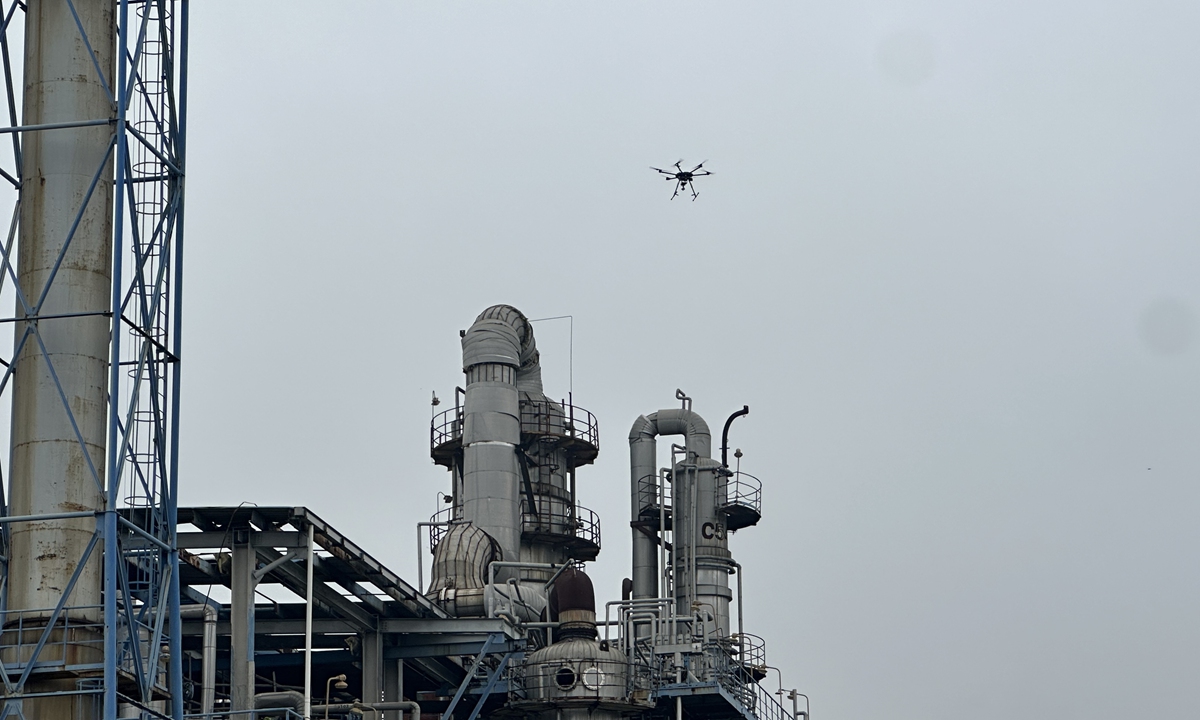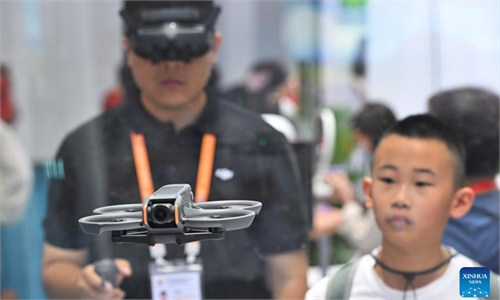
A drone equipped with radiation sensors is in operation. Photo: The Paper
Advanced equipment including drones with radiation sensors, source-seeking robot dogs, and radiation disposal robots were exhibited at the Hu'an-2024 emergency exercise in East China's Shanghai on Tuesday. These advanced devices provide a reliable guarantee for quickly finding out-of-control radioactive sources and avoiding high-dose radiation exposure to emergency responders.
The exercise deployed nearly 200 sets of the latest domestic radiation emergency equipment, including radiation emergency vehicles, drone-based source-seeking system, radiation source disposal robots, radiation source search robot dogs, and decontamination vehicles, according to The Paper.
The use of robot dogs for autonomous source detection and online dose measurement was one of the highlights of this exercise. Wu Mingming, a deputy director of the Health, Safety and Environment Department at State Nuclear Power Plant Service Co Ltd, told The Paper that the robot dogs were equipped with dose monitoring devices by using custom-developed software for autonomous detection.
Additionally, the dogs' high-definition cameras, combined with AI tools developed for metal pattern recognition, enable autonomous source detection. With the aid of graphical software and remote videos, the final location of the radiation source can be identified through initial dose detection, he said.
Wu highlighted that traditionally, determining the precise location of a radiation source necessitated personnel to come close for measurements, thereby exposing them to radiation risks. Now, the use of robotic dogs to replace human involvement avoids human exposure to radiation, embodying the principle of human safety first.
This exercise focused on safety-related production accidents in chemical companies that could lead to radiation accidents, setting up scenarios where two radiation incidents occurred and were handled simultaneously.
It mobilized radiation emergency response forces from Shanghai and the Yangtze River Delta region for a comprehensive, real-world drill. The key aspects tested included accident reporting, emergency activation, site control, radiation monitoring, source detection and storage, decontamination, and public relations response.
The use of "gantry radiation detectors plus washing vehicles" and decontamination agents tested the Shanghai radiation emergency team's capability to deal with open radioactive contamination.
The exercise also launched the first integrated response mechanism for radiation safety in the Yangtze River Delta, accumulating experience to enchance the joint handling of such emergency scenario for the six provinces and one city in East China.
Global Times


